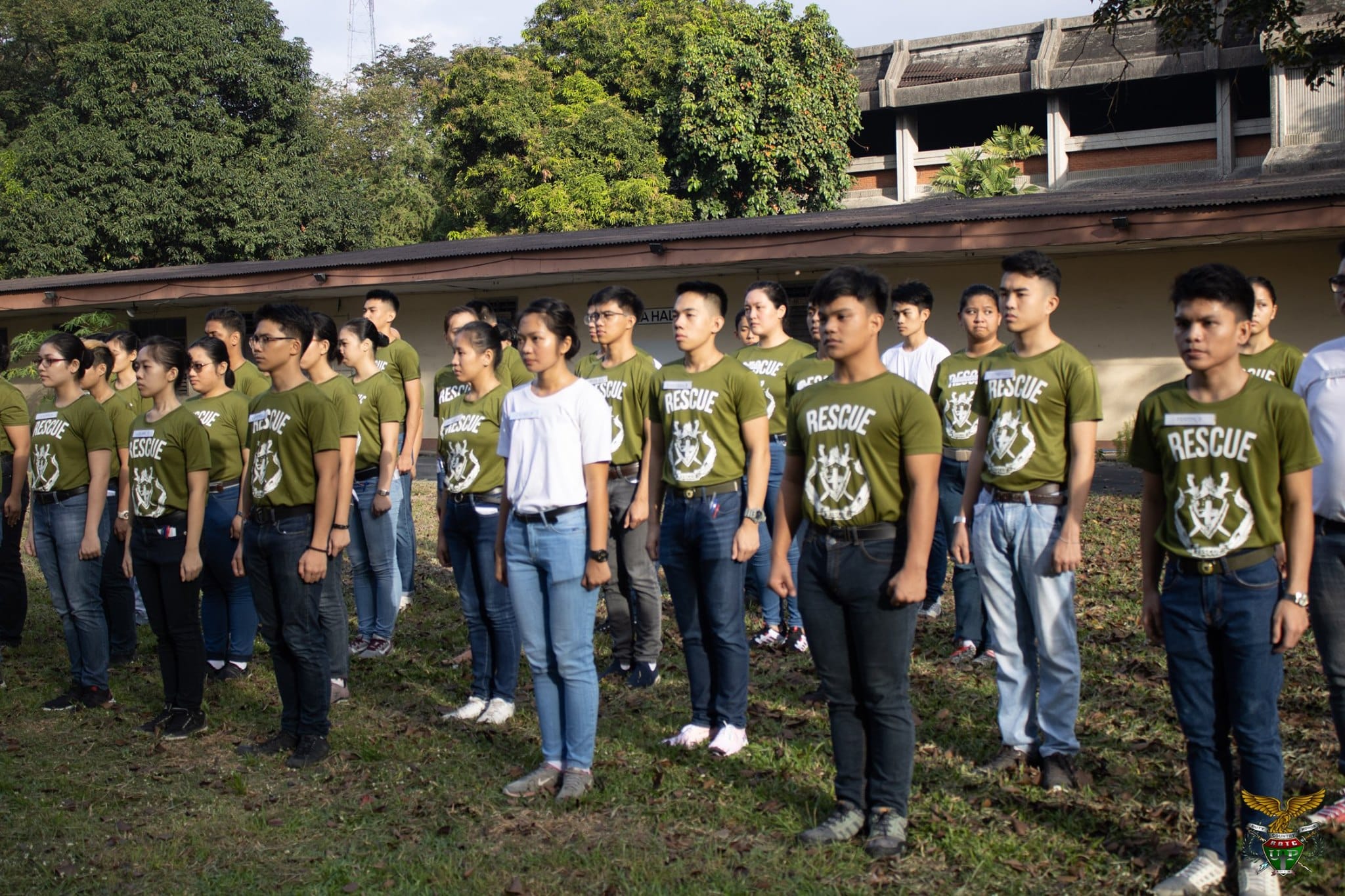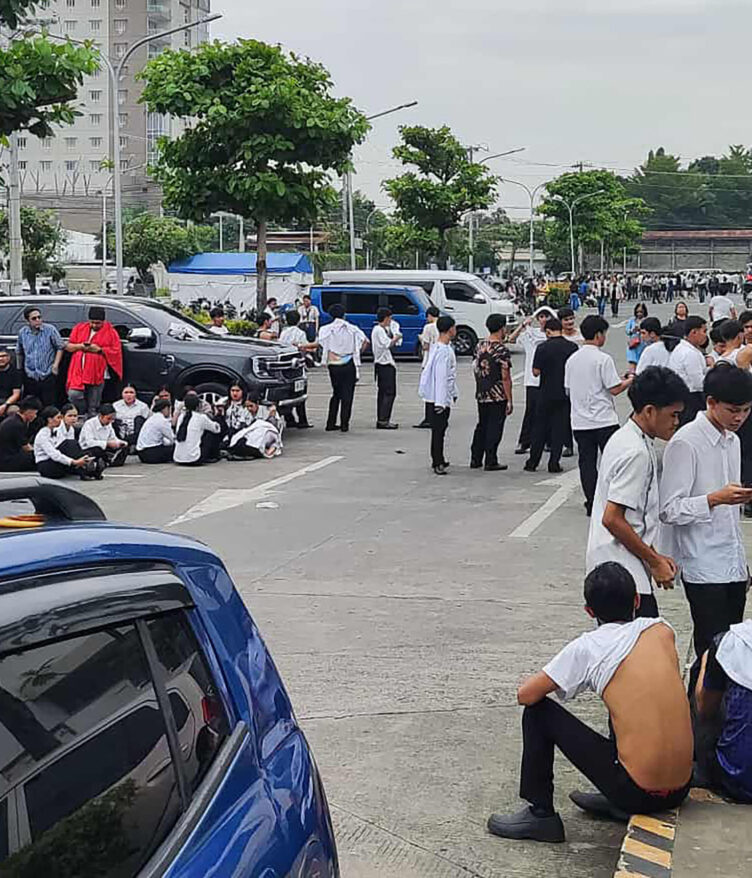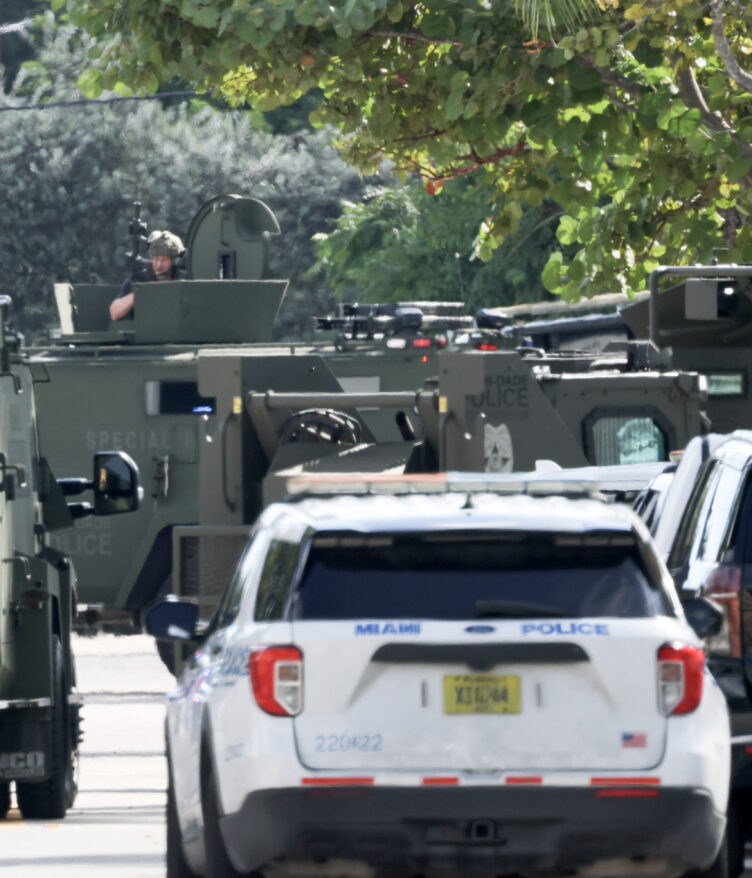CONGRESS is a step closer to approving a new mandatory citizens training program for college students so that they could be called upon to serve during emergencies and contingencies.
The House of Representatives passed on third and final reading House Bill 6687, which seeks to establish the mandatory National Citizens Service Training Program (NCSTP) and make the Reserve Officers’ Training Corps (ROTC) program optional.
The NCSTP will replace the current National Service Training Program.
The bill has the backing of Malacañang, which certified it as urgent and allowed the House to hasten its passage by approving it on second and third reading on the same day.
But critics warn that the measure would militarize campuses and put students and educational stakeholders in imminent danger.
What is the bill all about?
It seeks to “institutionalize the vital role of the youth in nation building” by revitalizing their involvement in civic and public affairs.
It also seeks to constitute the youth into a major component of the Citizen Armed Force, and they may be called upon to defend the State and to render personal military or civil service under conditions provided by law.
It requires tertiary educational institutions to “train, equip and organize the youth, within the current frameworks of national and territorial defense, law enforcement and peace and order and national disaster risk reduction and management.”
Who are covered?
The bill will require all college students enrolled in undergraduate degree programs and at least two-year technical vocational educational training (TVET) programs to undergo National Citizens Service Training.
The program will be implemented by the Commission on Higher Education and Technical Education and Skills Development Authority in consultation with the Department of National Defense.
Foreign nationals enrolled in undergraduate degree programs or TVET courses where the NCST is required should also undergo a special NCST program that would deepen their understanding and appreciation of the Philippines and its people, society, culture, and government. It should also harness their potential as a bridge to improve the relationship between their countries and the Philippines.
The NCSTP curriculum
The program’s design and curriculum should provide students with practical and applicable knowledge and skills necessary for survival and resilience.
The bill states that these skills must be immediately available in times of local and national emergencies and disasters.
The curriculum must also instill in students the values of civic-mindedness, volunteerism, and genuine service to others, and teach them to be community crisis managers and leaders.
Their training must include civic duty inculcation, survival and safety techniques including first-aid administration, and community or mass emergency and disaster response and management.
The program must be completed within the first two years of all undergraduate degree programs. It will also be a requirement for graduation.
All graduates of the NCST will be incorporated in the National Service Reserve Corps and AFP Reserve Force.
National Service Reserve Corps
The bill also creates the National Service Reserve Corps which is placed under the control and supervision of the National Disaster Risk Reduction and Management Council.
The NSRC will be “a source of volunteers and conscripts in times of national or local necessity, calamities, emergencies, disasters, or armed conflict to perform non-combat duties and render services as the President or the appropriate local sanggunian may deem necessary.”
Optional ROTC
While the NCST is mandatory, the bill maintains that the ROTC should be optional for college students.
The optional ROTC curriculum should be designed by the Commission on Higher Education and Department of National Defense and administered by the Armed Forces of the Philippines.
The program is “primarily designed to train volunteer tertiary education students to be officers of the Regular and Reserve Force of the AFP.”
Graduates of the four-year ROTC program are expected to be capable of “immediate deployment” as AFP’s commissioned officers.
In addition, the ROTC program of instruction should encompass “advanced military subjects and courses, practical exercises and field exercises necessary and appropriate for an entry level officer commission in the AFP.”
The NCSTP Panel
Meanwhile, representatives from the following will make up the NCSTP
Technical Panel:
- CHED
- TESDA
- DND
- National Disaster Risk Reduction and Management Council (NDRRMC) through the Office of Civil Defense (OCD)
- Department of the Interior and Local Government (DILG)
- Philippine National Police (PNP)
- Department of Social Welfare and Development (DSWD)
- National Youth Commission (NYC)
- Philippine National Volunteer Service Coordinating Agency (PNVSCA)
- Philippine Red Cross
- One student representative and two private sector representatives who shall be recognized experts or practitioners in the field of citizen service training, disaster preparedness, reservist training, or related fields
The NCSTP Technical Panel will be responsible for reviewing and updating the design, curriculum, modes and methods of delivery of the NCST Program.
Penal provisions
The bill prescribes the “maximum penalty” for any act of abuse, corruption, hazing, torture, privacy rights violation, or violation of human rights committed in direct or indirect relation to this measure.
Government officers and employees that would be found guilty of the prohibited acts may be disqualified from government service.
It also states that criminal or administrative prosecution will not be a bar to any civil action or any appropriate relief that may be sought by a victim of abuse or any rights violation committed in relation to the measure.
Opposition to the NCST Program
Amidst the act’s vast support system, Gabriela Rep. Arlene Brosas vehemently opposed the approval of the bill.
According to Brosas, the NCSTP will not truly ingrain patriotism in the youth, “especially when the government, including military forces, is allowing US troops in our country through the Enhanced Defense Cooperation Agreement . They are also allowing China to build artificial islands in disputed waters in the West Philippine Sea.”
Gabriela will not permit fraudulent patriotism to be instilled in the consciousness of the youth and students she said/
“Ipinapagtanggol ng AFP at PNP ang mga dayuhan samantalang sinusupil ang mamamayang Pilipino. Pekeng patriyotismo ito at hindi natin hahayaan na ganito ang ipalaganap na kaisipan ng panukalang batas na ito sa mga susunod na salinlahi,” said in a speech.
Brosas also feared that the NCSTP entails the further militarization of campuses in the Philippines that will put the studentry, the faculty, the education support personnel, and the whole education stakeholders at “risk of imminent danger.”
In line with this, the women’s party representative recommended optional methods to uplift the youth’s sense of nationalism, such as revamping the curriculum for History and Filipino subjects for all ages.
“We can also expand the National Service Training Program and include a community service program, health, and nutrition program, disaster preparedness program, and human rights education,” she added.
Why the ROTC is no longer mandatory
The mandatory ROTC program was abolished in 2001 due to the series of protests led by student activist groups that came after the death of the University of Santo Tomas cadet Mark Chua.
According to a 2018 report by the Varsitarian, the then-19-year-old mechanical engineering student and fellow cadet Romulo Yumul revealed the corruption that took place inside the university’s ROTC program.
Chua and Romulo’s exclusive exposé was published in the schoolpaper’s February 2001 issue that resulted in the relief of Maj. Demy Tejares from duty as commandant of the ROTC unit, and other Department of Military Science and Tactics (DMST) officials.
The following month, Chua went missing and his father, Welson, received a call claiming that Mark was kidnapped, demanding a P 3 million-ransom.
On March 18, 2001, just two days after the call was received, Mark’s “decomposing body” was fished out in the Pasig River. The cadaver was rolled in a carpet, his hands and legs hogtied, while his face was wrapped with a silver duct tape.
Upon rigorous probe, the authorities found the perpetrators of Chua’s death were his fellow UST cadets.
Three years after Chua’s murder, one of the accused, Arnulfo Aparri, was sentenced to death with lethal injection and ordered to pay the victim’s family P 50,000 in indemnity. But the abolishment of death penalty in 2006 changed Aparri’s sentence to life imprisonment without parole.
Meanwhile, Eduardo Tabrilla, who also took part in the crime, pleaded guilty in 2006 to homicide. Two of the four suspects, Paul Tan and Michael Rainard Manangbao, remain at large.
In his State of the Nation Address, President Ferdinand “BongBong” Marcos Jr. expressed his intent to prioritize the revitalization of the mandatory ROTC in the Philippines.
Marcos’ predecessor, former president Rodrigo Duterte also had the same goal during his term. However, the Duterte administration failed to establish a bill that requires military training to tertiary education as staunch critiques have blocked the bill’s way into approval.
Photo credit: UP ROTC Facebook page
How useful was this post?
Click on a star to rate it!
Average rating 0 / 5. Vote count: 0
No votes so far! Be the first to rate this post.
We are sorry that this post was not useful for you!
Let us improve this post!
Tell us how we can improve this post?








